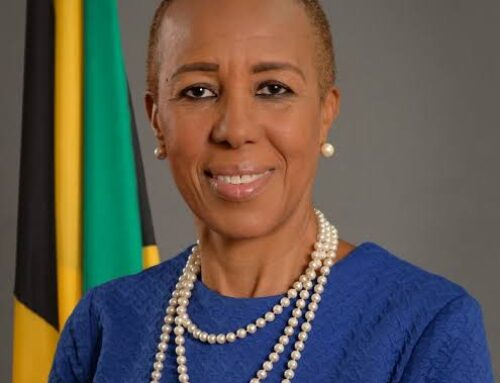
Gov’t walking a tightrope with public sector wages
Financial Analyst and CEO of Quantas Capital, Dr Adrian Stokes, says the Government is walking a fine line when it comes to balancing public sector wages and responsible fiscal policy.
Speaking on Taking Stock, Dr Stokes noted that public sector compensation for the 2023/2024 financial year is at 11% of Jamaica’s gross domestic product and will stay at that level for the next five years.
“Our fiscal responsibility law calls for wages to GDP to be at 9%. So, that’s something that Government will have to manage quite carefully because it is important to pay our public servants well but there’s the fiscal discipline that needs to be maintained,” he said.
During his opening budget presentation, Finance Minister Dr Nigel Clarke revealed that more than half of the Government’s $657 billion funds for non-debt recurring expenses will go towards public sector employees’ compensation.
Public sector wages account for $367.4 billion or 56 per cent of the non-debt recurring expenses.
Dr Stokes explained that with public sector wages so high the Government runs the risk of causing a fiscal deficit, which is spending more money than the Government collects in taxes.
“When you increase wages to a point where it’s eating up a lot of your GDP then you’re placing yourself in a serious fiscal risk. If tax revenues were to slow down, and they will slow going into the next fiscal year, there’s a risk that Jamaica could run a fiscal deficit,” he explained.
“A fiscal deficit means that you’re spending more than what you collect in taxes and that has financed some way… either you can borrow or you can tax,” he added.
“So, while we are very sympathetic to our public servants, the average man on the street also has to consider ‘am I in a position to pay more taxes to cover more wages,” he noted.
The analyst said that it is a fine needle that the Government is threading, given the overall uncertain global economic climate.
“Sometimes public policy is an art as opposed to a science,” he said.
“Fiscal discipline is important, it is the anchor of our macro economic strategy. It is the basis on which we’re building an economy that will increase employment, reduce interest rates and have low and stable inflation,” he added.
Some public sector groups were unhappy with the Government’s compensation package, refusing to sign until they received what they said was a “livable wage”.
Teachers across the island protested for days refusing to settle negotiations until the Government reassessed the deal. However, in his opening presentation, the Finance Minister signalled that the wage offer for public employees was unlikely to change.
The Jamaica Teachers’ Association later voted to accept the deal. The Jamaica Constabulary Force is one of the only groups yet to accept the Government’s offer.
WATCH THE INTERVIEW HERE
Ask The Analysts
The Cast David Rose Business Writer, Observer Leovaughni Dillion Investment Research & Sovereign Risk Analyst at JMMB Group
R.A. Williams to list on JSE
The Cast Audley Reid CEO R.A. Williams Distributors Julian Morrison Founder, Wealth Watch JA










Leave A Comment